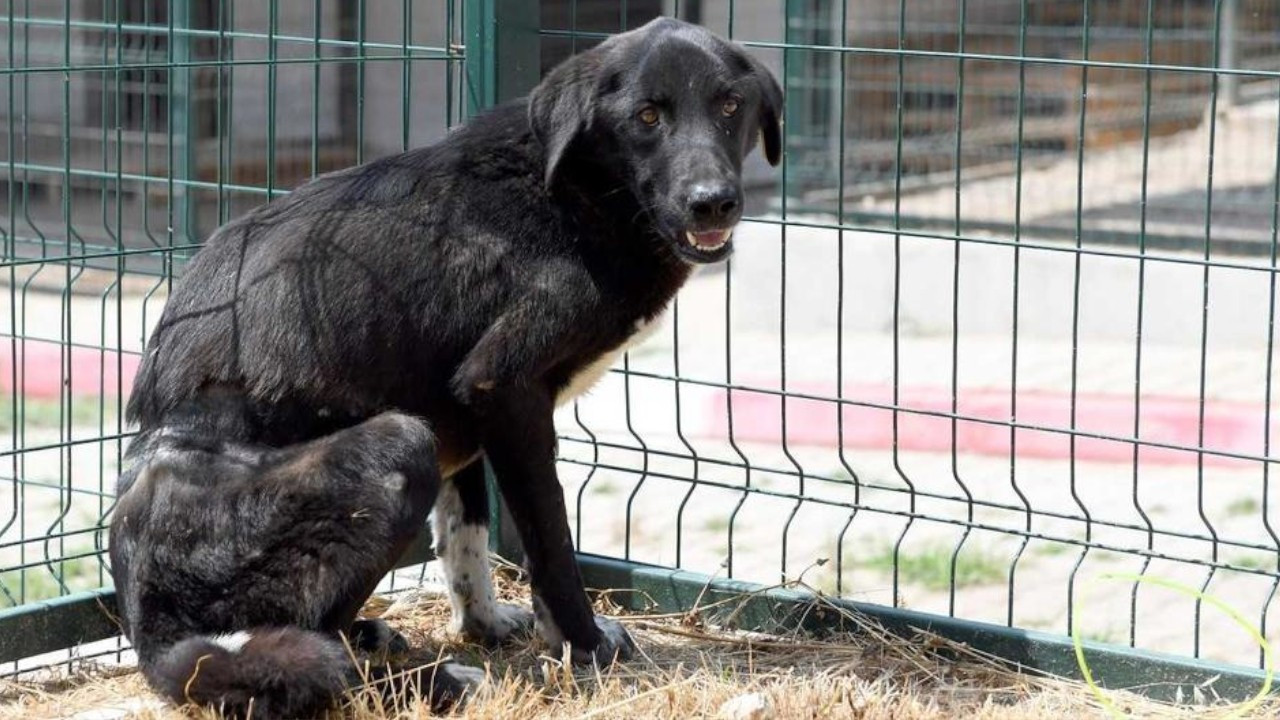Turkey's long-awaited animal rights bill turns out to be a massive disappointment
Tolga Şirin writes: Earlier this month, Turkish Parliament finally amended the Code of Animal Protection. The amendment has been long awaited by the pro-animal rights community, but it turned out to be a disappointment. The new code has failed to address five major issues which have been prioritized by Turkey's animal rights activists.
Tolga Şirin
Earlier this month, the Turkish Parliament finally amended the Code of Animal Protection. The amendment has been long awaited by the pro-animal rights community, but it turned out to be a disappointment for optimists who still have high expectations from Turkey’s authoritarian Islamist government. The animal rights defenders were unsurprisingly unsatisfied with the amendment and organised several protests against the controversial reform. The ruling Justice and Development Party (AKP) government, however, does not seem to listen to these criticisms, and therefore, other reforms within animal rights will probably not take place for a long time.
The amended code involves nineteen provisions; hence, it is not feasible to relay all of the articles with in-depth explanation. Therefore, this paper will summarise what the new code brings and categorise the reform in terms of its positive, controversial and negative aspects.
What are the positive provisions in the new code?
The new code includes two positive provisions, as follows:
Firstly, it makes mandatory for owners of cats and dogs to hold a digital identity. The lack of such an obligation hindered the tracking of animal abandonment on the streets. Now, the amendment explicitly forbids the abandonment of pets and brings sanctions for such act. Accordingly, the digital identity obligation is coherent with the new ban.
Secondly, the new code defines ‘rehabilitation,’ hereunder it legally means ‘treatment and parasite control of stray animals, vaccination, sterilisation and marking with digital identification methods.’ The definition is essential to construe the role and responsibilities of ‘rehabilitation centres.’ The new code requires the municipalities to found animal hospitals that had no explicit legal basis previously.
These new implications are important achievements and should be supported.
What are the controversial provisions in the new code?
There are at least four provisions which are controversial also among the animal rights defenders.
Firstly, the new code bans establishing new dolphin parks and any new land or water circuses where animals are used. The ban is not valid though for existing parks and circuses which may be active for ten years, as long as they do not bring and lock any new anima according to the code. However, one can question whether the amendment is effective in deterring the use of animals in entertainment businesses since the fine for breaching the ban is rather low.
Secondly, the new code prohibits the selling of cats and dogs in pet shops. However, there is no provision about online trade. Moreover, animal rights defenders expected that the code would promote the adoption of stray dogs or cats, which is has been a long-term chronic issue in Turkey. The reform did not meet such expectation.
Thirdly, the code brings a legal base for natural life parks to be found. It seems relatively hopeful for animal welfare if compared to regular zoos. However, the code does not ban zoos, which, given the conditions of the existing ones in Turkey, definitely deserve to be called as 'animal prisons’.
Fourthly, the new code brings new bans on 'pitiless and cruel treatments' and accurately replaces the terms of 'sexual intercourse with 'sexual assault' and 'rape' as animals cannot, obviously, have consent for such acts. However, the sanctions for the banned actions are not deterrent, a recurrent aspect also for other bans in the new code.
What are the problematic provisions in the new code?
The new code has created a massive disappointment on five issues that have been waiting for a solution for a long time in Turkey.
Firstly, animal fights are illegal in Turkey since 2004. However, the pre-amended code used to bring an exception for this with regards to folkloric events. This arbitrary provision was expected to be abolished, but the new code neither brings a categorical ban nor does any change on this issue.
Secondly, animal rights activists in Turkey have since long backlashed against activities such as recreational hunting, furrier, carriage riding, horse or greyhound racing. One of the essential demands in the demonstrations on animal rights was the implementation of a new code to ban such this sort cruelties. However, the new code does not satisfy such demands.
Thirdly, the code had a provision on the slaughter of animals, saying, 'The slaughter of animals will be carried out, taking into account the special conditions required by religious rules, without frightening or startling the animal, in the least painful manner possible, in line with the rules of hygiene and as quickly as possible under the method used. It will be ensured that licensed persons carry out the slaughter of animals.' The provision brought a debate in Turkey if Islamic rules allow anesthetization before slaughter. And Directorate of Religious Affairs declared the opinion that ‘it is permissible to cut the animal unconscious by electric shock, narcosis or a similar method during slaughter, in order not to cause much suffering to the sacrifice (reducing the pain of death).’ However, the Parliament fell behind the Directorate, and the new code did not oblige such a practice and, thus, opens the door to cruelty to animals.
Fourthly, the new code does not bring appropriate and clear rules compatible with the 3R ethical principle (reduction, refinement, replacement). Although the code predicts the stipulation of 'if there is no other option' for animal experimentation, in practice, even experiments that could be carried out on computers, perform instead animal testing and causing unnecessary and cruel suffering to a lot of animals which are often painfully killed as part of even superficial academic studies. This is a problem that also relates to lack of effective control. On the other hand, the Turkish Penal Code’s (Article 90) requirement that 'in order to conduct an experiment on humans, it is obligatory to conduct an experiment on a sufficient number of animals' makes animal experiments almost the main rule. Moreover, it is said that nearly 266 thousand animals are killed after being used in experiments every year in Turkey.
The new code has no provision whatsoever against these practices.
For the code, every experiment institution is obligated to form an ethics committee in which NGO representatives have members; however, the institutions evade the law in practice by keeping members from irrelevant NGOs, e.g. outside the animal rights community such as a chamber of jewellers, etc. The new code also brings no effective rules against the evasion of law in this context.
Last but not least, one of the essential public discussions on animal rights concerns the transportation of animals. The expectation was that the new code would ban the export and transport of live animals over long distances (longer than eight hours, for instance) to favour, instead the trade of meat. The new code, however, left this issue to the ordinance with abstract references to animal welfare without giving any details or concrete provisions. Turkey, being a state party to the European Convention on the Protection of Animals during International Transport, should have regulated its obligations for animal transportation with a statute, not with an ordinance to be enacted by the government.
Consequently, it seems that we have a long way to go towards animal welfare and, most importantly, towards animal liberation in Turkey. We know that our people have neither welfare nor freedom. Our animals are no different.
Author:
Assoc. Prof. Tolga Şirin teaches at the Department of Constitutional Law at Marmara University's Faculty of Law.

 Turkish parliament approves animal rights bill amid protests over its scopeDomestic
Turkish parliament approves animal rights bill amid protests over its scopeDomestic Turkey to deport Japanese man for eating kittensDomestic
Turkey to deport Japanese man for eating kittensDomestic